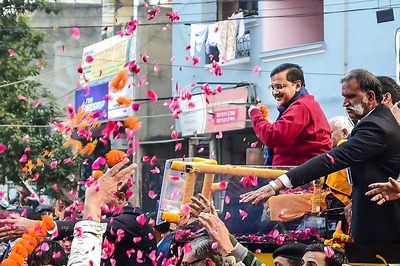
views
At a time when around 2,000 delegates from across the world have converged in the city to discuss bio-safety measures, NGOs feel that the government should first implement the recommendations of Parliament Committee on field trials of genetically modified (GM) crops.
Sridhar Radhakrishnan, convenor of the Coalition for GM Free India, who is in the city for the sixth Meeting of Parties to Cartagena Protocol on Biosafety (COP-MOP 6), wondered why the Ministry of environment is hesitating to implement the recommendations to stop field trials of GM crops in the country.
“The trials of GM crops is unscientific, unethical and contrary to biodiversity convention. Millions of rupees are going to be spent to reduce or control the risks involved in this,” he said.
About 400 organisations are working in the country for eco-friendly agriculture. According to Sridhar, they are trying to convince the government to invest more in organic farming and agroecological methods instead of GM crops.
"We want the countries to ratify the protocol that put liability on manufacturers of modified organism," he added.
The NGOs will be holding meetings on agro-biodiversity and biosafety on the sidelines of the main event. Recollecting the adverse effect of GM crops, Sridhar said, “While American Bollguard, the first brand of BT cotton, has been declared a failure and over 2.9 lakh suicides have been reported from only rain-fed BT cotton belt in the country, BT cotton have taken around 93 percent of cotton fields in the country.”
“The government cleared production of GM crops in 2002 without ensuring biosafety. Monsanto, the producer of BT cotton, forced the farmers to sow seeds which was promoted by them only,” he said.
The crops introduced as low cost alternative to organic crops have proved as consuming more fertilizers, pesticides and water, Sridhar added.


















Comments
0 comment